The following profile resulted from a conversation with Charlotte Keys, Director of Library Technology Services, Tisch Library,Tufts University.
Q: When are you planning to implement?
A: Tufts is in the process of implementing this Summer after we have completed our Alma/Primo implementation.
Q: What is the major benefit you hope to see as a result of your institutions use of Leganto?
A: We are looking forward to faculty being involved in the process of enabling their own reserves. We hope this will make materials accessible more quickly and also help us to integrate e-articles into reserves without having to expand that effort to our staff. We are also planning to integrate with our course management system, which will lead to easier handling of access control for faculty and students who now have to keep track of our proxy prefix.
Q: What do you see as the major challenge you’ll encounter in getting your community of users to utilize Leganto?
A: Busy people having to learn new things is always an issue, but we hope the improvements the product offers will be an encouragement, as well as students now having access to reserves through the CMS as well as the library interface to reserves.
Q: How will you measure success?
A: We have not discussed this yet. We felt that our opportunity to license Leganto was part of our acquisition of Alma/Primo and we didn’t want the opportunity to pass by! If by metrics, can you share those you’re measuring?
Q: How can the user group best be of help to you?
A: I am a big believer in something that gets knocked a lot—the “How I Done It Good in My Library” sharing that can happen through user groups. We will always get the best info and feedback about a product from our fellow users rather than the vendor, no matter how good they are at sharing “how-to’s.”
Q: How do you see Leganto contributing to the positioning of your library within your University?
A: I’m interested especially in the opportunity (really our first one) to integrate our services directly into the CMS. We’ve had a lot of collaboration in the past with the IT group that manages the CMS, but all of the integration has been manual and completely separated from library service points online, so users are not aware necessarily that online reading material is provided by the libraries.
Carl Grant
Associate Dean, Knowledge Services & Chief Technology Officer
University of Oklahoma Libraries
